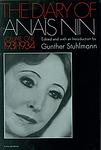Alberto Moravia
Alberto Moravia, born on November 28, 1907, and died on September 26, 1990, was a renowned Italian novelist and journalist. His work is known for its critical examination of social issues, particularly the bourgeoisie and the alienation of modern society. Some of his most famous novels include 'The Time of Indifference' (1934), 'The Conformist' (1951), which was adapted into a film by Bernardo Bertolucci, and 'Contempt' (1954), which was made into a film by Jean-Luc Godard. Moravia's writing is characterized by its narrative clarity, psychological depth, and engagement with existential themes.
Books
This list of books are ONLY the books that have been ranked on the lists that are aggregated on this site. This is not a comprehensive list of all books by this author.
-
1. A Ghost at Noon
A Ghost at Noon is a tale of a troubled marriage set against the backdrop of Rome and Capri. The story follows a screenplay writer who is struggling with his failing marriage and the production of his new film. As his wife becomes infatuated with their young guide in Capri, the writer becomes increasingly paranoid and jealous, ultimately leading to the collapse of their relationship. The narrative parallels the story of Homer's Odyssey, which the protagonist is adapting for the screen, adding another layer of complexity to the story.
-
2. The Time of Indifference
This novel explores the dynamics of an upper-middle-class Italian family facing financial ruin. The story focuses on the emotional indifference and moral decay among family members, as they engage in affairs and manipulative behavior to secure their social status. As the family's fortunes dwindle, their lack of empathy and moral integrity becomes increasingly evident, offering a critique of bourgeois values and the corrosive effects of apathy and materialism.
-
3. Disobedience
"Disobedience" is a novel about a young man, Luca, who refuses to serve in the Italian army during World War II. The narrative explores his experiences as he hides from the authorities, the moral dilemmas he faces, his sexual awakening, and his relationship with his mother. His refusal to obey the military draft serves as a symbol of his rebellion against societal norms and expectations, as well as his search for personal identity and freedom.
-
4. The Conformist
The novel explores the life and psyche of a government official during the 1930s Fascist Italy, who is driven by a desire to belong and be considered "normal" at any cost. Tormented by his own perceived abnormality and a traumatic past, he becomes obsessed with conforming to the societal norms dictated by the fascist regime. In an attempt to prove his allegiance and suppress his own feelings of inadequacy, he agrees to carry out a political assassination. The narrative delves deep into themes of identity, the nature of conformity, and the moral compromises made by individuals under oppressive political systems.
-
5. 1934
The novel is a psychological exploration of an Italian writer's life during the rise of Fascism in 1934. Struggling with creative block and a sense of political suffocation, the protagonist embarks on a journey to a seaside resort in search of inspiration and an escape from the oppressive political climate. There, he becomes entangled in a complex relationship with a young, enigmatic woman who is a member of the Fascist party. Through their interactions, the novel delves into themes of power, sexuality, and the role of the intellectual in a totalitarian society, ultimately painting a portrait of an individual's inner turmoil and moral conflict in the face of a repressive regime.




